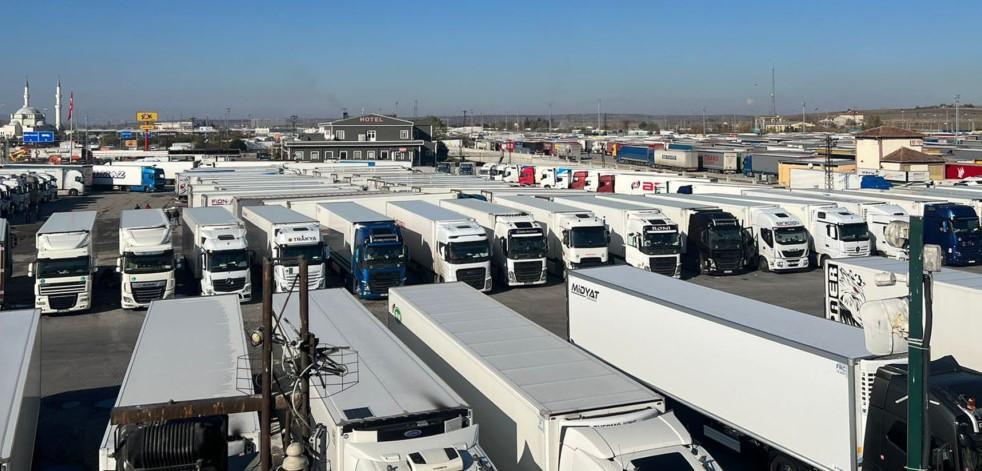
The problems at a laboratory in Bulgaria that inspects Türkiye exports to European countries are causing long delays for trucks at the common border, impacting the local fruit and vegetable exporting companies.
The troubles have been occurring since April, but over the past 10 days, those problems have worsened. Trucks must wait at least three to four days at the Kapıkule border crossing. Since deliveries are delayed, Turkish exporting companies have to pay compensation to their clients in Europe.
“The problems at the laboratory in Bulgaria first emerged in April but were resolved at that time. However, they reemerged in August and have been continuing since then; problems have become acute,” said Ümit Rıza Çavuşoğlu, the head of the Western Mediterranean Exporters’ Association (BAİB).
The truck parking lots both on the Bulgarian and Turkish sides are full now due to long waits, he added.
The root cause of the problem is the political situation in Bulgaria, according to Çavuşoğlu. “Over the past 20 months, five elections were held but no government has been formed. There could be another poll in March and if a government emerges out of this election, the problems [at the border] could be resolved,” he said, noting that trucks wait at least four to five days on the border.
“We are losing customers. Companies are in a difficult situation, facing fines.”
Çavuoğlu noted that in the past the analysis of the products used to be carried out at the border, but later samples started to be sent to Sofia for inspections. “This laboratory is operated by a private company and there is a problem between them and Bulgarian officials.”
Growers in the southern province of Antalya managed to boost exports by 10 percent but now problems there are hindering exports, said Ali Bahar, head of the Antalya Chamber of Commerce and Industry (ATSO).
“Such problems at the border occasionally occurred in the past years, but were resolved after the governments intervened, yet they would begin again. We need a permanent solution. Only produces from 15 to 20 trucks are inspected per day. This week we will inform the relevant ministries of the problems we are facing,” Bahar said.